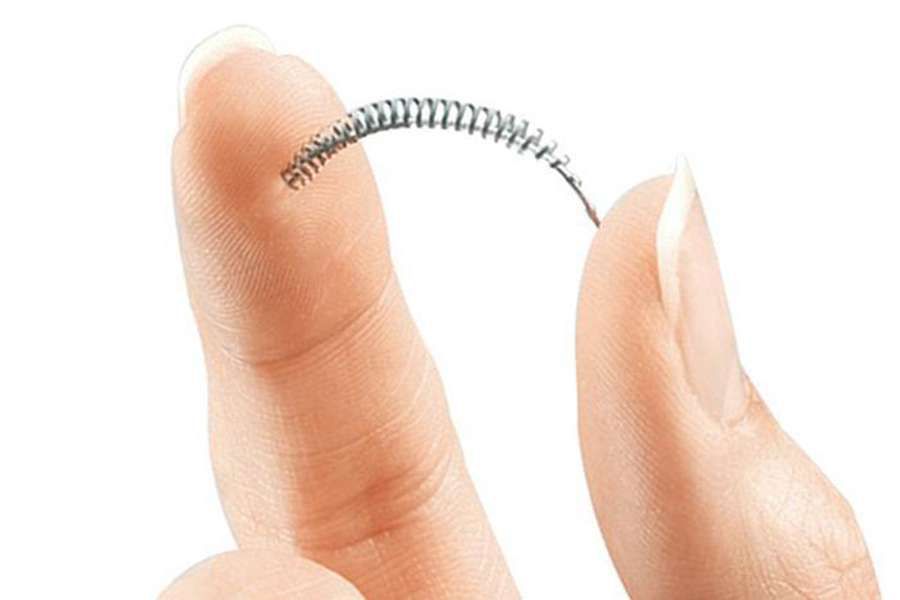German pharmaceutical company Bayer announced recently that it has suspended from all non-US sales the Essure coil, a controversial form of birth control which has received the strictest possible FDA warning for its side effects, which include chronic pain, bleeding, and severe allergic reactions.
“The device [Essure] was sold to me as a simple and easy procedure. I was told that I’d be in and out of the doctor’s office in 10 minutes and that there’d be no recovery time,” said Laura Linkson, a user of Essure who shared her testimony on the UK show Victoria Derbyshire, according to the BBC. “I went from being a mum who was doing everything with her children, to a mum that was stuck in bed unable to move without pain, at some points being suicidal,” Linkson continued, saying, “I felt like I was a burden to everyone around me.”
Essure is a nickel and polyester coil which is inserted into the fallopian tubes, causing scar tissue growth, as a way of preventing eggs from reaching the womb. This form of birth control, known as hysteroscopy sterilization, has been around since 2002 and is currently manufactured and distributed by Bayer.
Last week, Bayer announced its voluntary decision to halt all sales outside of the U.S., citing “commercial reasons.” “We would like to reassure the Essure patients and their accompanying healthcare professionals that this decision is made for commercial reasons and that it is not related to a safety or product quality issue,” read a statement from Bayer’s website. “According to our scientific assessment, the positive risk-benefit ratio of Essure remains unchanged.”
Essure sales in the EU were temporarily halted last month, following product license suspension in Ireland due to overall concerns for the product. Bayer also encouraged hospitals in the UK to suspend the use of their existing stocks for the time being. However, Essure is still being sold in the U.S., its most popular market, although Bayer announced it is no longer marketing outside of the country.
Despite its popularity, more than 15,000 women in the U.S. alone have reported serious health issues resulting from the birth control coil, according to BBC. In fact, over the past few years a group has surfaced called Essure Problems – an organization of women who are lobbying against Essure in court due to negative experiences with the product. The group now has more than 35,000 members. Some reported side effects included chronic pain, flu-like symptoms, bleeding, depression, exhaustion, suicidal thoughts, and allergic reactions. In some cases, the coil had moved into other parts of the body, protruding into nearby organs and the pelvis.
These side-effects are a far cry from the device’s label warnings, which include “mild to moderate pain and/or cramping, vaginal bleeding and pelvic or back discomfort for a few days.”
“Whatever they’ve put on the label, multiply it by 200,” said Angela Desa-Lynch, an administrator for the Essure Problems Group, in a previous interview with CNA. “They don’t tell you that it’s ‘I can’t get out of bed and take care of my kids’ kind of pain,” she continued.
Surgery or a hysterectomy is the only way to remove the Essure coil, which has resulted in additional complications with the birth control device. The coils can easily break during surgery, causing further health issues such as additional surgeries, inflamed abdomens, and cysts. In addition, most health insurance companies will not cover the cost of the coil’s removal, resulting in a hefty medical bill. “One woman had a coil in her colon, she went from a business owner to bankruptcy” after four surgeries, Desa-Lynch stated.
The FDA placed its most severe warning on the birth control coil in November 2016. Known as the “black box” label, it is “designed to call attention to serious or life-threatening risks,” according to the FDA’s website. An FDA spokesman said that the agency “has taken several steps to ensure the ongoing evaluation of Essure's safety and efficacy, as well as to educate healthcare professionals and women about the potential risks of using the device.”

